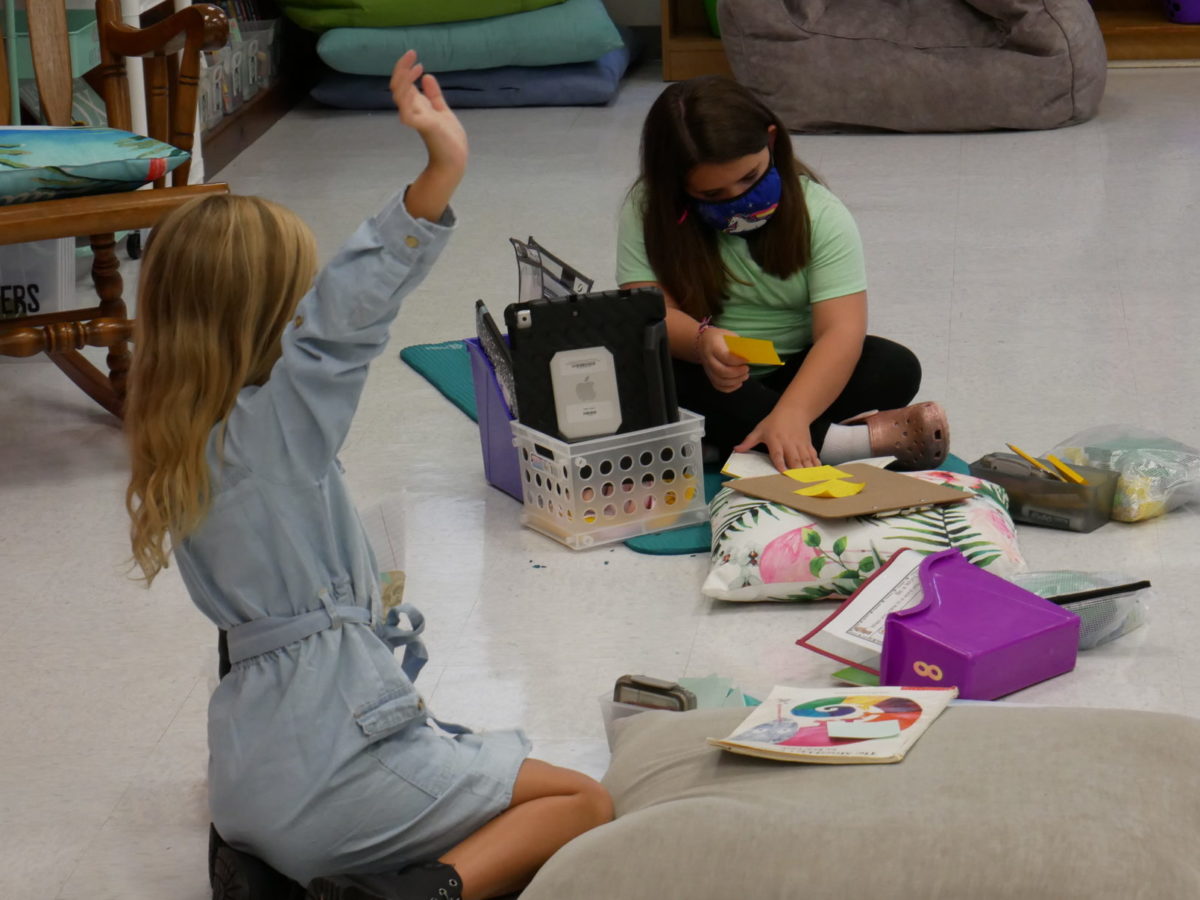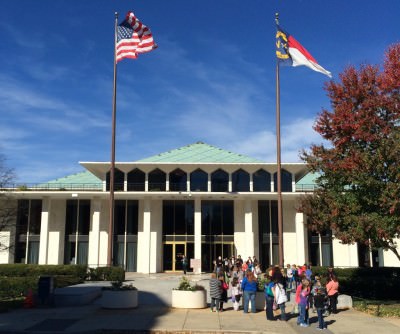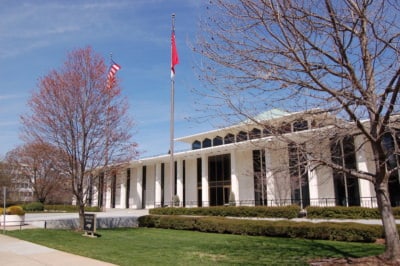

House Speaker Tim Moore, R-Cleveland, introduced legislation at a press conference on Feb. 16 aimed at mitigating the learning loss associated with COVID-19 and remote learning.
The bill would require each school district in the state to offer a six-week summer program to K-12 students with a priority on students who are considered at-risk. The legislation says students who are not at-risk can participate if space is available. The legislation only applies to traditional public schools, not charter schools.
“If we don’t do this right, North Carolina will pay for decades,” Moore said, adding later: “A child who can’t read by the third grade is going to fall further and further behind.”
After school buildings closed last March due to the COVID-19 pandemic, students across the state moved to remote learning. Even as some students have returned to classrooms this school year, many are still engaging in some form of remote learning, leading to concerns about learning loss.
Under the legislation discussed during the press conference, classes in the program would last at least five hours a day. Students in grades K-3 would be offered instruction in reading and math. Third grade students would also be offered instruction in science. At least one “enrichment” activity would be offered at the discretion of the district. This could include things like sports, music, or art, according to the bill.
Students in grades 4-8 would be offered reading, math, and science, as well as one enrichment class. High school students would be offered instruction in end-of-course subjects, and would be given modules and support for credit recovery.
The program would be completely voluntary for students. Kindergarten students who participate would be “exempt from retention for the 2021-22 school year.”
No extra funding is being provided for these summer programs. The bill states that it would be paid for “within funds available, including federal funds received by a local school administrative unit for the purpose of responding to the impacts of the coronavirus disease.”
During the press conference, Moore said that the legislature already appropriated $1.6 billion to be used to help schools reopen and that this money can also help with the summer program. That money is funding that comes from the federal government to address COVID-19 impacts and will mostly go directly to school districts. Lawmakers have no discretion as to how it is spent or distributed.
A second part of the bill would require the State Board of Education to come up with “innovative benchmark assessments in certain grades and core subject areas,” so that teachers can get a more regular look at how students are doing and to address the learning loss they have experience.
Rep. John Torbett, R-Gaston, a co-sponsor of the bill, said that the legislature has a responsibility to make sure North Carolina students are educated, something that he said lawmakers take seriously.
“This is about mental health,” he said. “It’s about the educational health and economic health of our children.”
The bill will be heard in a House K-12 education committee on Feb. 17 but will be for discussion only.
State Superintendent Catherine Truitt weighed in on the legislation via email later in the day.
“Learning loss resulting from COVID has the potential to be a generational hurdle, and there is no question that it needs to be addressed. Summer school is certainly an option that should be considered, among other initiatives, as districts look to mitigate the many effects of COVID-19,” she said. “I look forward to working with the legislature to assist struggling students and provide them with the academic and emotional support needed to transition them back to full time, in-person instruction.”
Katherine Joyce, executive director of the North Carolina Association of School Administrators, said in an email that her organization appreciates the bill’s focus on helping “struggling students catch up this summer.”
“Our superintendents and principals already have been planning summer offerings to support those needs,” she went on to say. “We at NCASA and our school leaders who are just seeing this new bill definitely want to help make this proposal work for schools, families and students. Key in that effort is ensuring that the summer school options are not prescriptive but instead allow local districts to tailor the offerings and schedule to what their students need.”
Joyce also offered the following initial feedback, which she said NCASA is already hearing from “school leaders.”
- “The bill should apply to all public schools, and not just LEAs (school districts), because all have students needing extra support as this pandemic subsides.
- “The provision for teachers to be employed for this program as temporary employees, and not allowing them to earn either retirement credit or leave time, may deter many from agreeing to lead classrooms during summer school. We need to incentivize their involvement with changes to this section of the bill.
- “The parameters of when the summer school must be offered, as currently written to be six weeks for at least 5 hours of instruction per day five days a week, may not appeal to all families and teachers, so broadening the schedule options is something we highly recommend.
- “We would like to see this bill also outline the 2021-2022 calendar requirements our schools will need to implement, since the work in setting those calendars has to occur now while plans for summer school also are under way.”
In-person learning bill
Update 5:24 p.m. Feb. 16: The Senate passed the compromise version of the legislation described in this section. The House is still expected to take it up on Feb. 17.
Moore also commented during the press conference on the legislation that would require schools to bring students back to schools. He said the House and Senate are expected to have a compromise bill on Feb. 16 and it should be voted on, at least in the House, on Feb. 17.
To recap, schools were allowed to open last fall in either a hybrid model — part remote learning, part in-person (plan B) — or fully remote (plan C). Later, Gov. Roy Cooper said elementary schools could return full-time with minimal social distancing (plan A).
Still, even now, some school districts have remained fully remote. The General Assembly is now considering legislation that would require schools to resume some form of in-person instruction, and Cooper recently called for all districts to bring students back to classrooms.
That legislation would make schools open for exceptional needs students under plan A, and under either plan A or plan B for all other students. No district would be able to solely offer remote learning to students, but families who want their students to remain fully virtual would still have that option. The bill doesn’t apply to charter schools, only traditional public schools.
The legislation passed the Senate and House, but because of an amendment in the House, it had to go back to the Senate for concurrence. The Senate did not concur, and so members of both chambers have been meeting to hash out differences.



